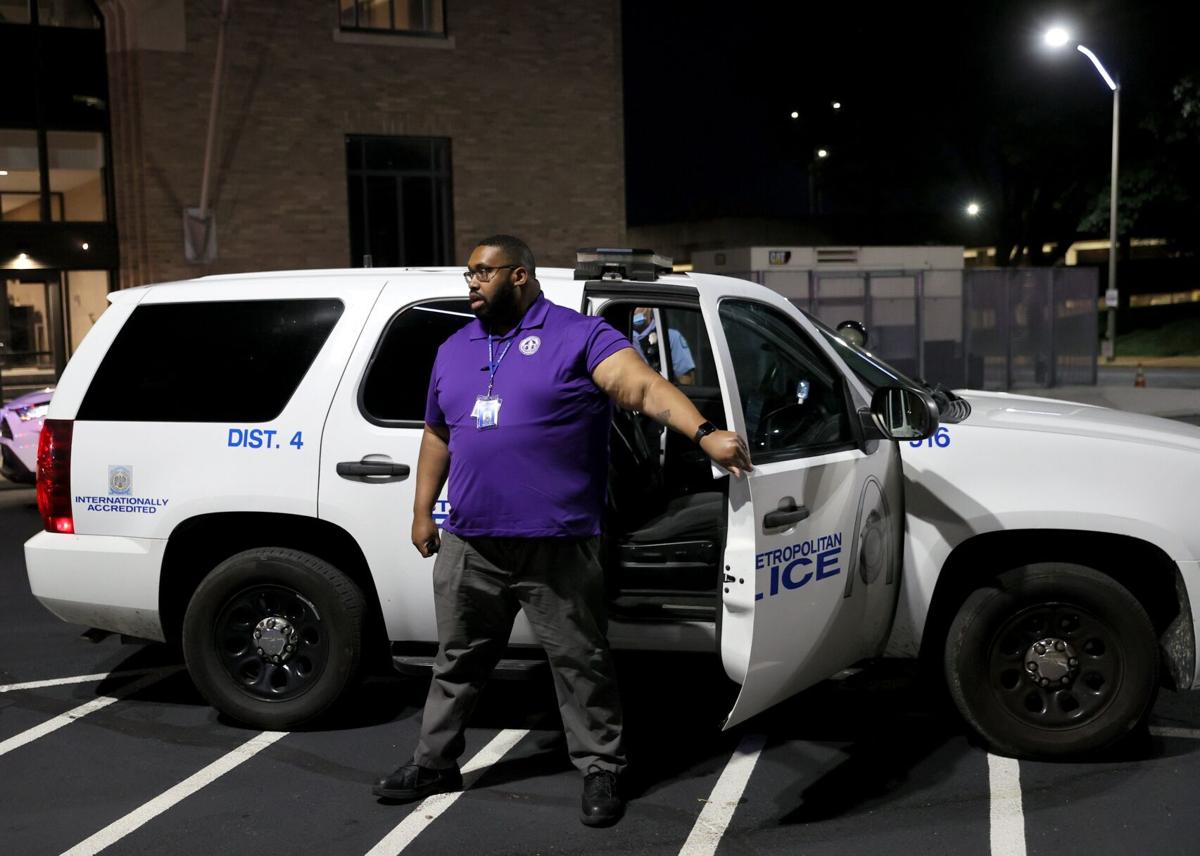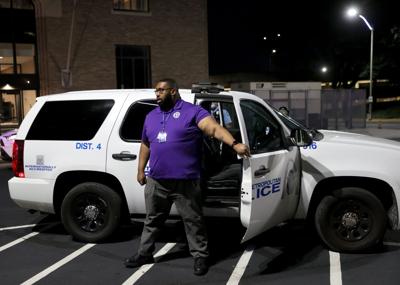Last summer, Congresswoman Cori Bush and ◊Ó–¬–”∞…‘≠¥¥ Mayor Tishaura O. Jones traveled to Denver to get an up-close look at the latest rage in public safety.
Started as a pilot project just a few months earlier, the STAR program in Denver seeks to divert 911 calls that involve mental health issues to behavioral specialists instead of police officers. It is modeled to some degree after a similar program in Oregon called CAHOOTS.
Jones‚Äô predecessor, Mayor Lyda Krewson, started a version of the concept in ◊Ó–¬–”∞…‘≠¥¥ that Jones has continued and wants to expand: Some 911 calls here are diverted to mental health specialists, and others are answered by a police officer along with a mental health professional ‚Äî a ‚Äúpurple shirt.‚Äù
People are also reading…
The programs are popular with cops, who can focus on more serious public safety work. They’re popular with mental health professionals, who believe such needs have been ignored for too long, as states and cities have cut mental health services and sometimes warehoused people who need help in jails.
Better yet, the programs work.
Last month, the Denver City Council the STAR program, spending $1.4 million to grow it from one van to six. Other cities in the Denver metro area are adding similar concepts to their public safety programs. In ◊Ó–¬–”∞…‘≠¥¥, officials say the program has saved about 2,000 hours of police time, my colleagues Erin Heffernan and Robert Patrick recently reported.
“Someone experiencing a mental health crisis does not need to come into contact with police or be thrown in jail,” Jones told reporters last month. “That doesn’t make our neighborhoods safer. It just introduces people into our revolving door criminal justice system while tying up police resources on a call that they may not be suited to handle.”
Some, like Bush, might suggest these programs fulfill the “defund the police” concept she discusses and that is so often derided by her political opponents. Indeed, the concept is to save police resources, and spend that money on mental-health professionals and services.
Others might call it something else. When Bush and Jones were in Denver for their tour last summer, Police Chief Paul Pazen said this: “This is not a ‘defund the police’ type of program. This is an ‘and’ to police, not an ‘or.’ This is enhancing the type of responses to get better outcomes and free up emergency services and law enforcement.”
Like politics often are, that statement is awash in semantics.
Indeed, in his own semantical flourish last week during his State of the Union address, President Joe Biden made sure to separate himself from Bush’s movement: “We should all agree: The answer is not to defund the police,” Biden said. “The answer is to fund the police with the resources and training they need to protect our communities.”
It’s worth noting, then, that in his American Rescue Plan, Biden and Congress provided $15 million to help 20 states fund mobile crisis intervention teams like those operating in Oregon. Both Colorado and Missouri are on the list of states to be funded. The money is budgeted through the Medicaid program.
This is a success story that becomes more difficult to tell in a political environment insistent on putting a label on everything. In this case, Bush and Biden and police officers and community activists are, mostly, all on the same side, seeking to help people in their communities who have mental-health needs, while not wasting police resources and using the wrong tool for the job, a tool that too often in such cases can turn deadly, especially for Black people.
Done right, as such programs expand, they should save enough money in public safety budgets that some of those funds can be shifted into mental-health services, with better results for everybody.
Is that funding the police or defunding them?
Call it what you will. It’s a winning strategy that should be cheered by people of all political stripes.


















